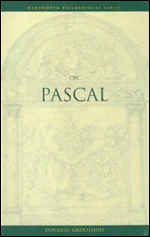Our spiritual poverty and the hidden God …

Why is God so often silent, so often hidden? This question, frequently voiced in cries of anguish and despair, has been uttered by numerous believers down through the centuries.
It was recorded in the oldest book in the Bible—it was the heart cry of Job as he sat on his ash heap.
Behold, I go forward, but he is not there, and backward, but I do not perceive him;
on the left hand when he is working, I do not behold him;
he turns to the right hand, but I do not see him. (Job 23:8-9)
I cry to you for help and you do not answer me; I stand, and you only look at me.” (Job 30:20)
David’s anguish in Psalm 22 was repeated in the desolate voice of Jesus on the cross.
My God, my God, why have you forsaken me?
Why are you so far from saving me, from the words of my groaning?
O my God, I cry by day, but you do not answer, and by night, but I find no rest. (Psalm 22: 1, 2)
And about the ninth hour Jesus cried out with a loud voice, saying, “Eli, Eli, lema sabachthani?” that is, “My God, my God, why have you forsaken me?” (Matthew 27:46)
The hiddenness of God has engaged many of the best theological minds down through the ages—Augustine, Thomas Aquinas, Martin Luther, John Calvin, and Karl Barth.
An oft-neglected voice is that of the French scientific genius and Christian philosopher Blaise Pascal. In a fine little introduction to Pascal, On Pascal, Doug Groothuis devotes a whole chapter to skepticism and the hidden God. He explains that Pascal believed that “God must be ‘hidden’ to some degree in order for creatures to feel their spiritual poverty.”
God is not an item of simple sensory observation or an obvious concept such as one would find in a proof of geometry.
Pascal has some scriptural support for this view. The psalmist exclaims, “But I cry to you for help, O LORD; in the morning my prayer comes before you. Why O LORD, do you reject me and hide your face from me?” (Psalm 88:13-14) The prophet Isaiah also speaks of God as powerful and provident, yet sometimes hidden (Isaiah 45:15) Pascal understands this paradoxical presence and absence as calibrated to the human condition:
If there were no obscurity, man would not be sensible of his corruption; if there were no light, man would not hope for a remedy. Thus, it is not only fair, but advantageous to us, that God be partly hidden and partly revealed; since it is equally dangerous to man to know God without knowing his own wretchedness, and to know his own wretchedness without knowing God. (Pensees, 446/586)
.
What can be seen on earth indicates neither the total absence, nor the manifest presence of divinity, but the presence of a hidden God. Everything bears this stamp. (Pensees, 449/556)
If God were perfectly obvious to everyone, people could not feel their inadequacies and need for grace and redemption. On the other hand, if there were no signs of deity, there could be no reason to hope for grace and redemption. So God’s existence is intimated and suggested in creation, but the divine reality is not overwhelmingly obvious to everyone. Pascal must have realized that in the first chapter of Romans, the Apostle Paul claims that God has revealed himself in creation such that everyone is without excuse if they fail to recognize their creator. Pascal would, I believe, agree. What he is claiming, along with Paul, is that humans, given their congenitally flawed condition, also tend to deny and suppress the truth revealed in creation. God allows us to shut our ears and turn our eyes away from the divine dimension. Paul says that God chose to create the world and providentially oversee it “so that people would seek him and perhaps reach out for him and find him, though he is not far from each one of us. (Acts 17:27)
Douglas Groothuis is Professor of philosophy at Denver Seminary, where he is the head of the Christian Apologetics and Ethics program, and directs the Gordon Lewis Center for Christian Thought and Culture. Dr. Groothuis has written numerous academic and popular articles, as well as eleven books, including Truth Decay (2000) and Christian Apologetics (2011), both of which won the “Award of Merit” prize from Christianity Today. He blogs at The Constructive Curmudgeon.


 January 20, 2015
January 20, 2015 







Comments are closed.